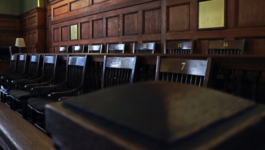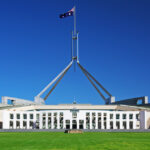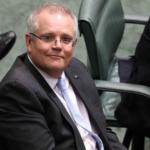The Offence of Juror Misconduct in NSW: Section 68C Jury Act 1977

The long-awaited sexual assault trial of a federal Coalition staff member has been aborted after a juror was found to have used material which had not been admitted as evidence.
Bruce Lehrmann, the man accused of sexually assaulting Britanny Higgins in Parliament House in Canberra, will now have to face a retrial after the juror brought a research paper on sexual assault into the jury room.
The jury retired to deliberate in the middle of last week, but earlier this week told Supreme Court Justice Lucy McCallum they were struggling to reach a unanimous verdict. At that point, Justice McCallum urged the jurors to keep trying – giving them what is known in New South Wales as a ‘Black direction’.
Jury dismissed, trial aborted
But today, the jury was discharged and the trial aborted after it was discovered a juror had engaged in misconduct by not only considering outside material, but bringing it into the sanctity of the jury deliberation room.
That conduct was in contravention of at least 17 directions from the trial judge to the effect that the jurors were not to conduct their own research or inquiries, and were required to rely solely on evidence presented during the trial – evidence that had been vetted for relevance and admissibility under the law.
The paper was discovered accidentally by a sheriff’s officer during a routine tidy up of the jury room. Chief justice, Lucy McCallum, said she had no choice but to discharge the jury.
“It is beyond question that the conduct of the juror is such as to abort the trial,” her Honour remarked.
“Both counsel for the prosecutor and the accused agreed with my decision in that respect. It should go without saying that this is both an unexpected and unfortunate outcome in this trial.”
In New South Wales, such misconduct could amount to a criminal offence, however no such offence exists in the Australian Capital Territory (ACT).
Juror Misconduct in New South Wales
Under section 68C of the Jury Act 1977 (NSW), making an inquiry for the purpose of obtaining information about an accused, or any matters relevant to a trial except in the proper exercise of a juror’s function is an offence, punishable by a maximum penalty of 5 years in prison and/or a $5,500 fine.
The offence applies to a juror from the time he or she is sworn in until the conclusion of the proceedings.
‘Making an enquiry’ encompasses:
(a) asking a question of any person, including a spouse or family member who is not a juror,
(b) conducting any research, for example, by searching an electronic database for information (such as by using the Internet),
(c) viewing or inspecting any place or object,
(d) conducting an experiment, or
(e) causing someone else to make an inquiry.
The offence further covers anything done by a juror in contravention of a judge’s direction/s.
It does not prohibit a juror from making an enquiry:
(a) of the court, or of another member of the jury, in the proper exercise of his or her functions as a juror, or
(b) that is authorised by the court.
Delayed proceedings
The conduct means Mr Lerhmann, whose reputation and life has already been destroyed, will need to face the fire once again, and the complainant and other witnesses will again need to give evidence in court.
The case has attracted a great deal media attention and social commentary because the allegations made Ms Higgins in early 2021 started an important national conversation about women’s safety at work, and launched a number of investigations into the workplace culture of Parliament House, and politics generally.
Fair trial
Lawyers representing the defendant Bruce Lehrmann, who has pleaded not guilty one charge of sexual intercourse without consent, have argued for months that given the high profile nature of the trial it would be difficult to find truly independent jurors.
An earlier application to the Supreme Court of the Australian Capital Territory (ACT) for a permanent stay of proceedings, on the basis that the intense and prolonged publicity would make it impossible to find 12 impartial jurors required for a fair trial, was dismissed, although a delayed start date was granted after controversial comments made by TV presenter Lisa Wilkinson during her Logies acceptance speech in June.
The trial was to commence just days later, but was rescheduled for November.
Media should ‘fall silent’ prior to the new trial
In acknowledgement of this issue, Justice McCallum today told the media it could report the outcome of this first trial but then should “fall silent” to prevent any prejudice to the second trial in four months’ time, and also to give both Ms Higgins and Mr Lehrmann a break from the intense media scrutiny that has surrounded the trial.
In New South Wales, it would be possible for such a high profile case to be tried by a judge alone, avoiding the need to secure 12 impartial jurors, but this is not possible in the ACT.
ACT law states that all sexual assault cases must be heard by a jury.
Mr Lehrmann will remain on bail and must notify police of any plans to travel.
A new trial date has been set down for February 2023.







